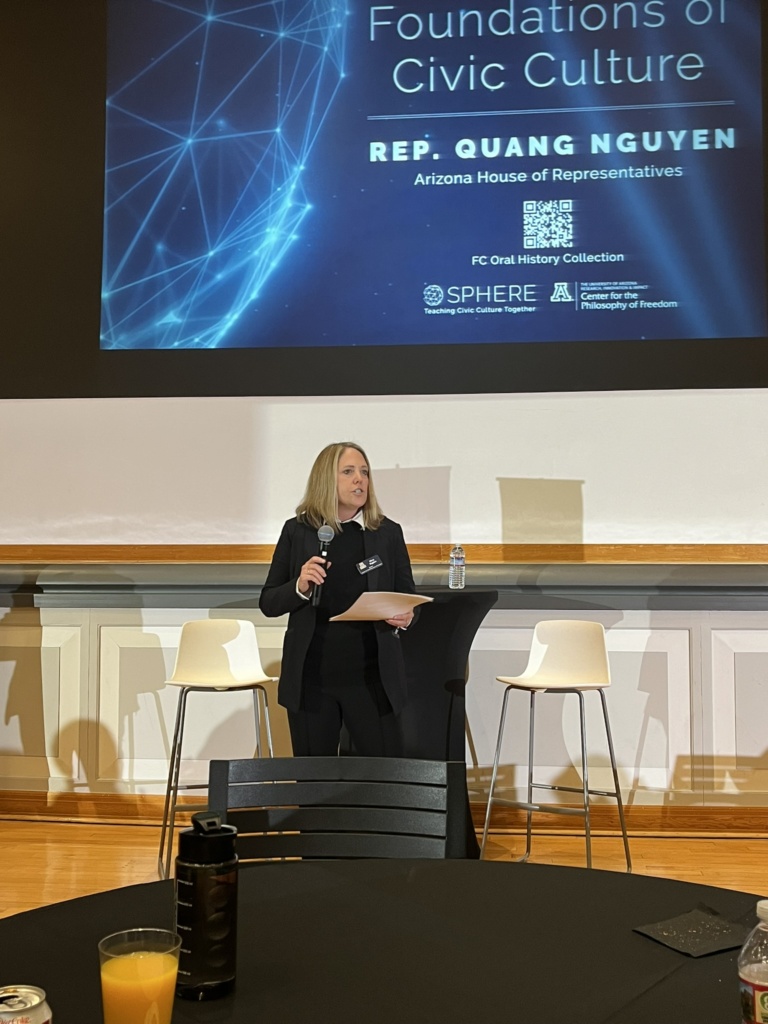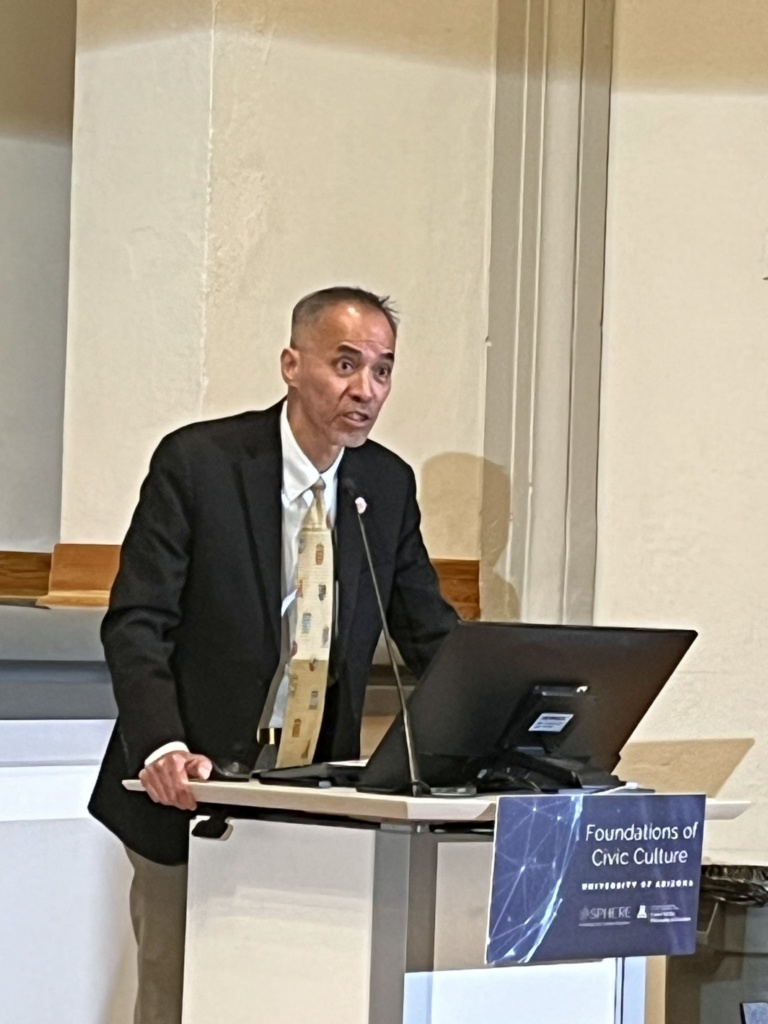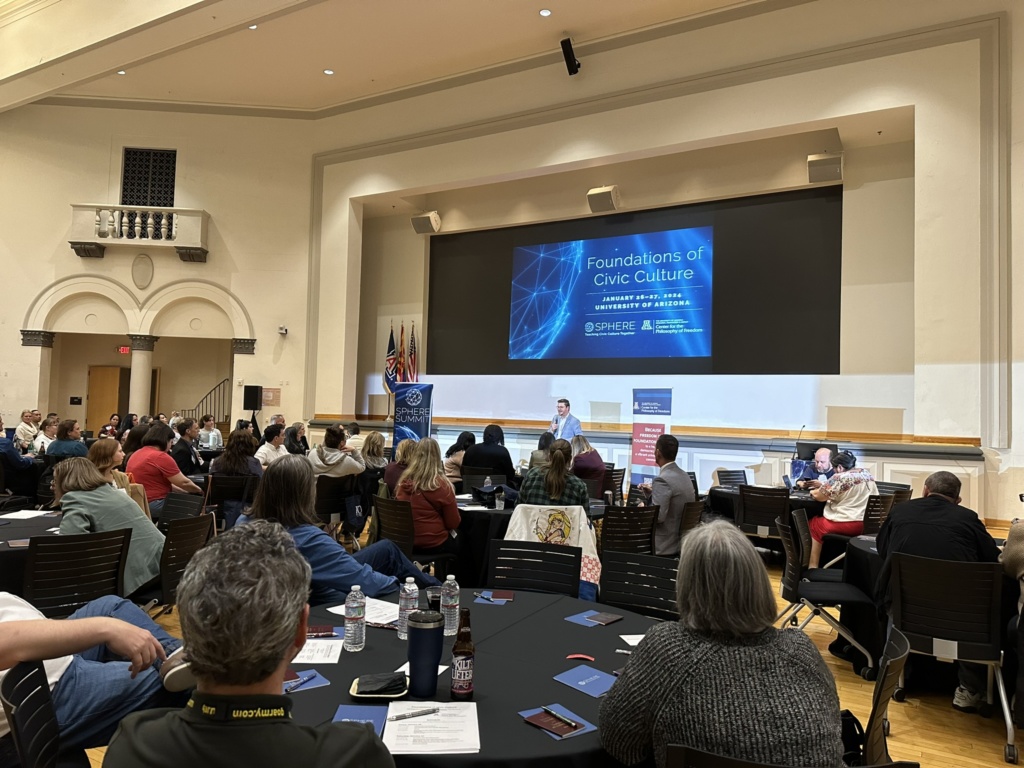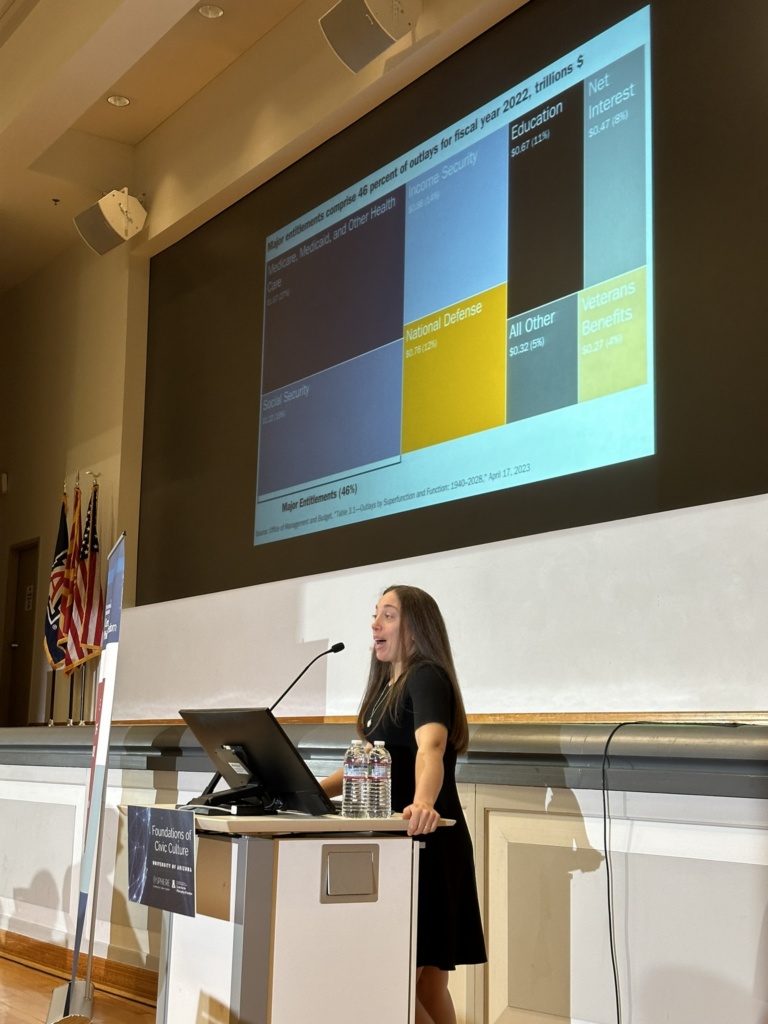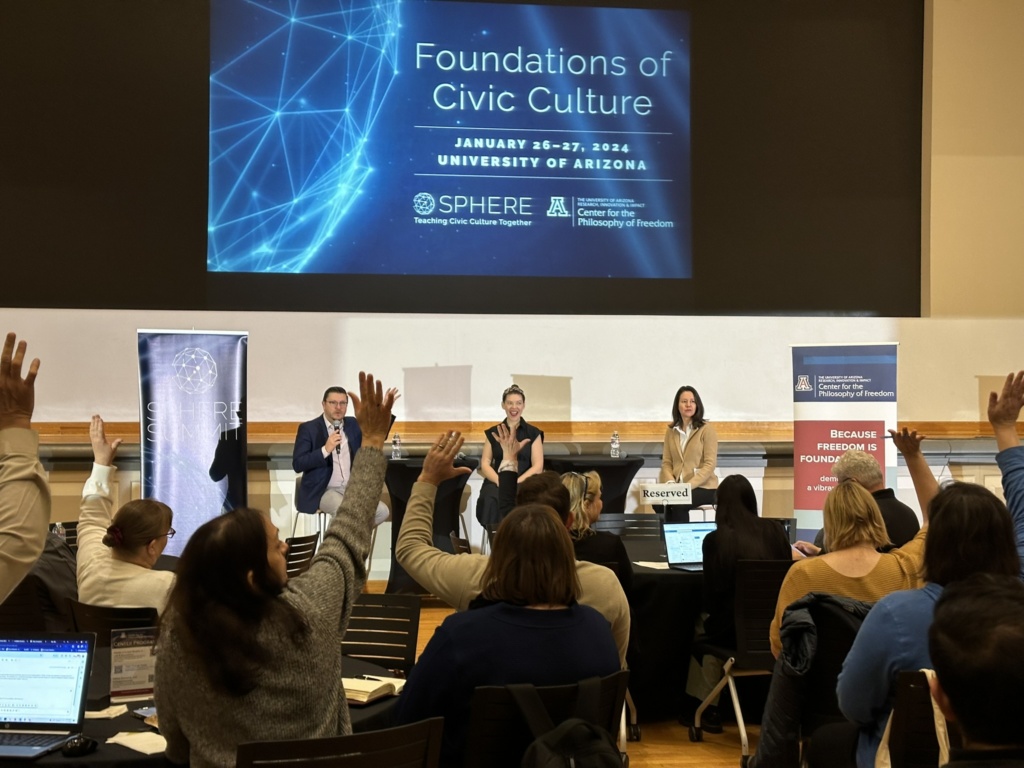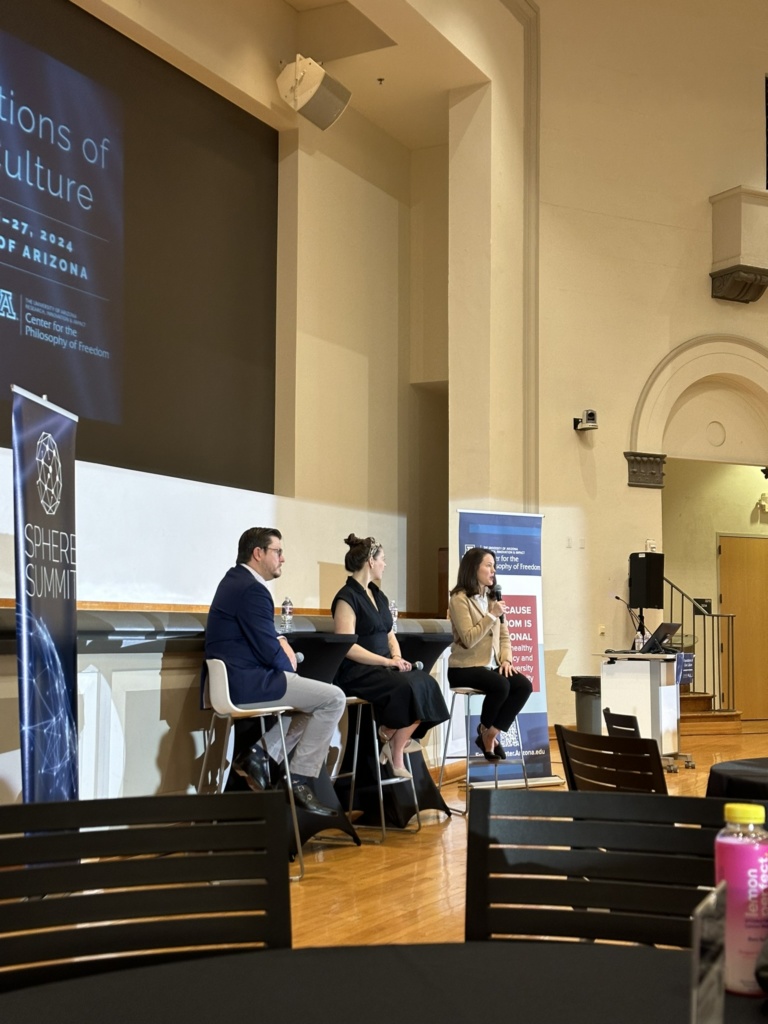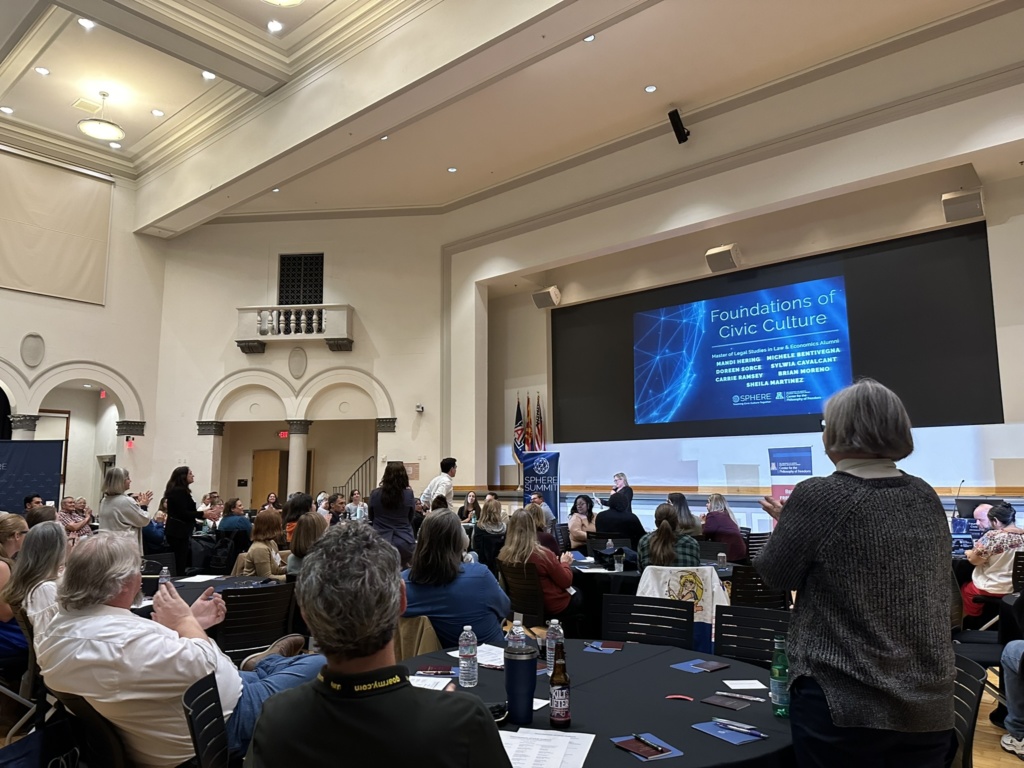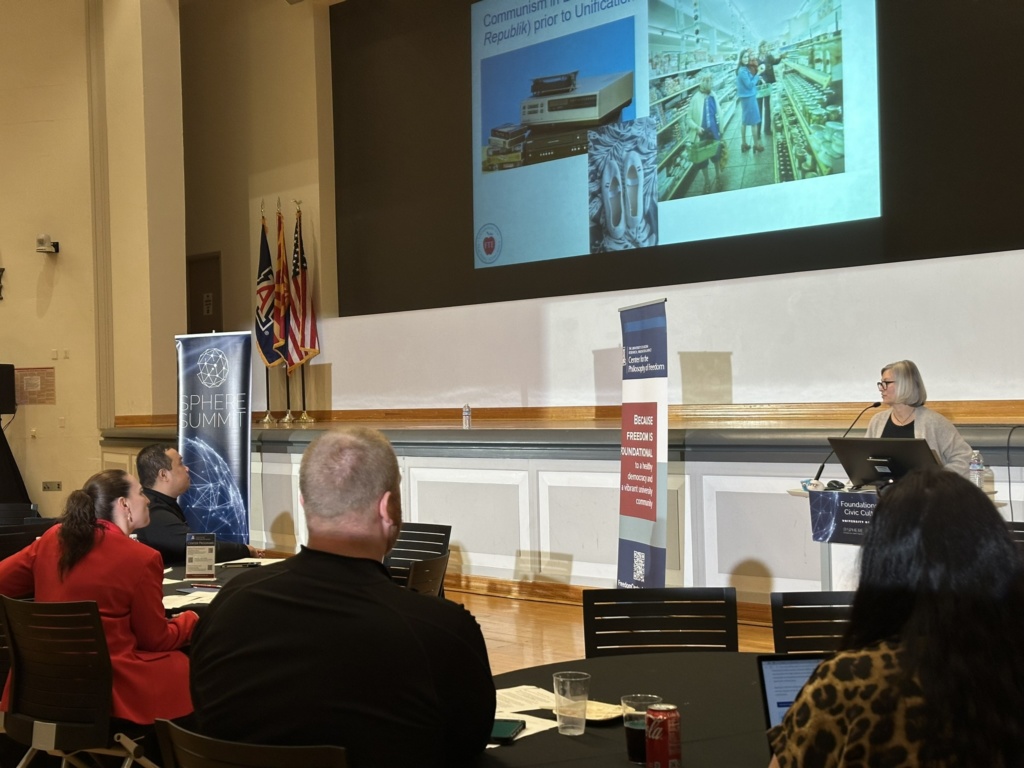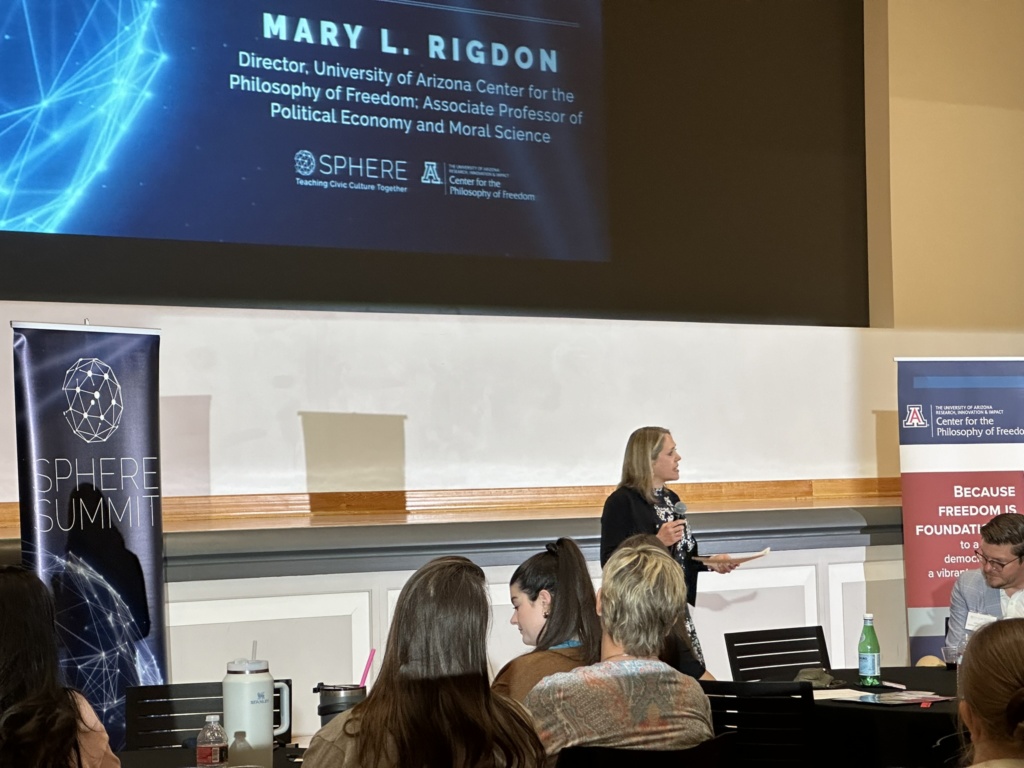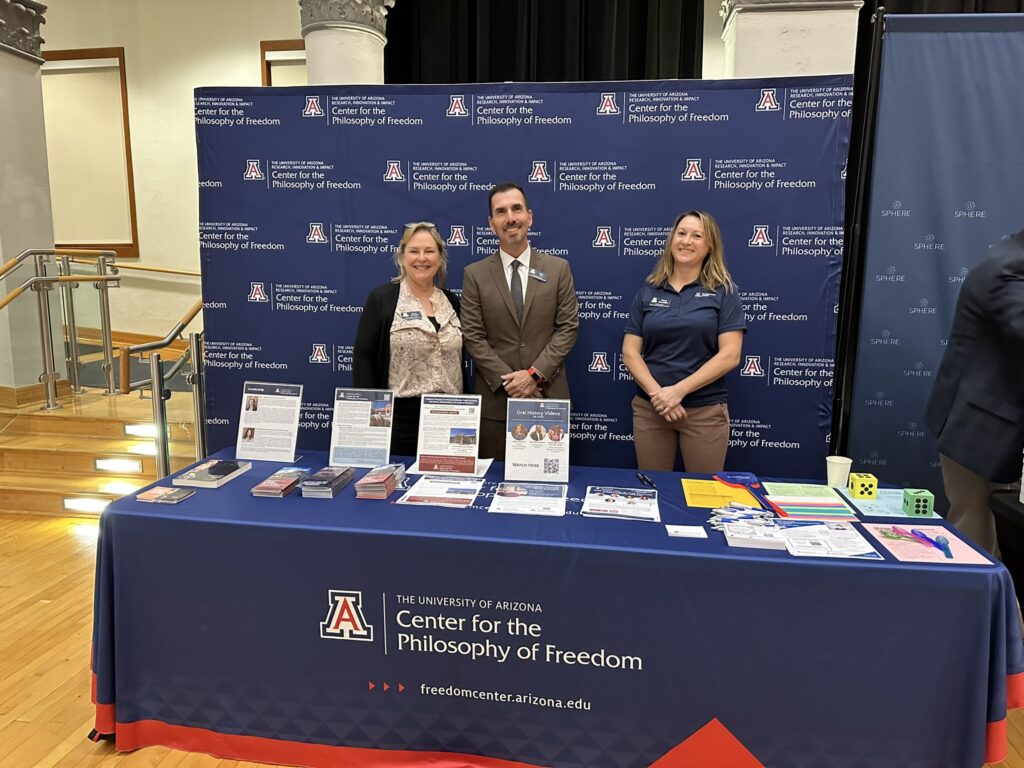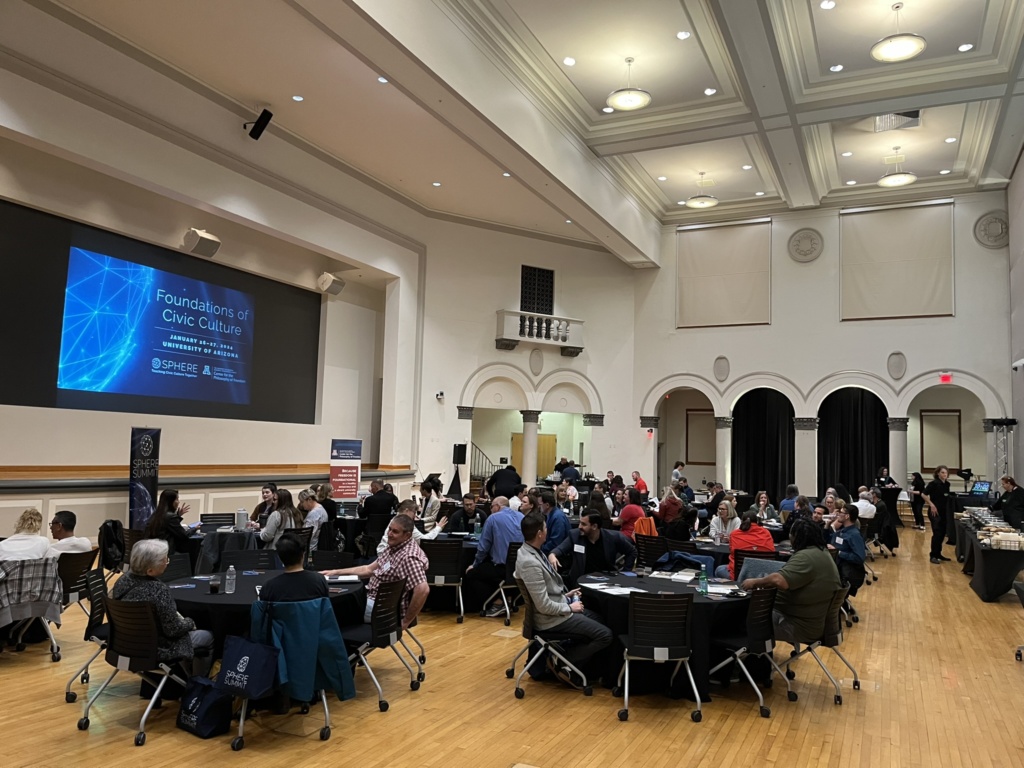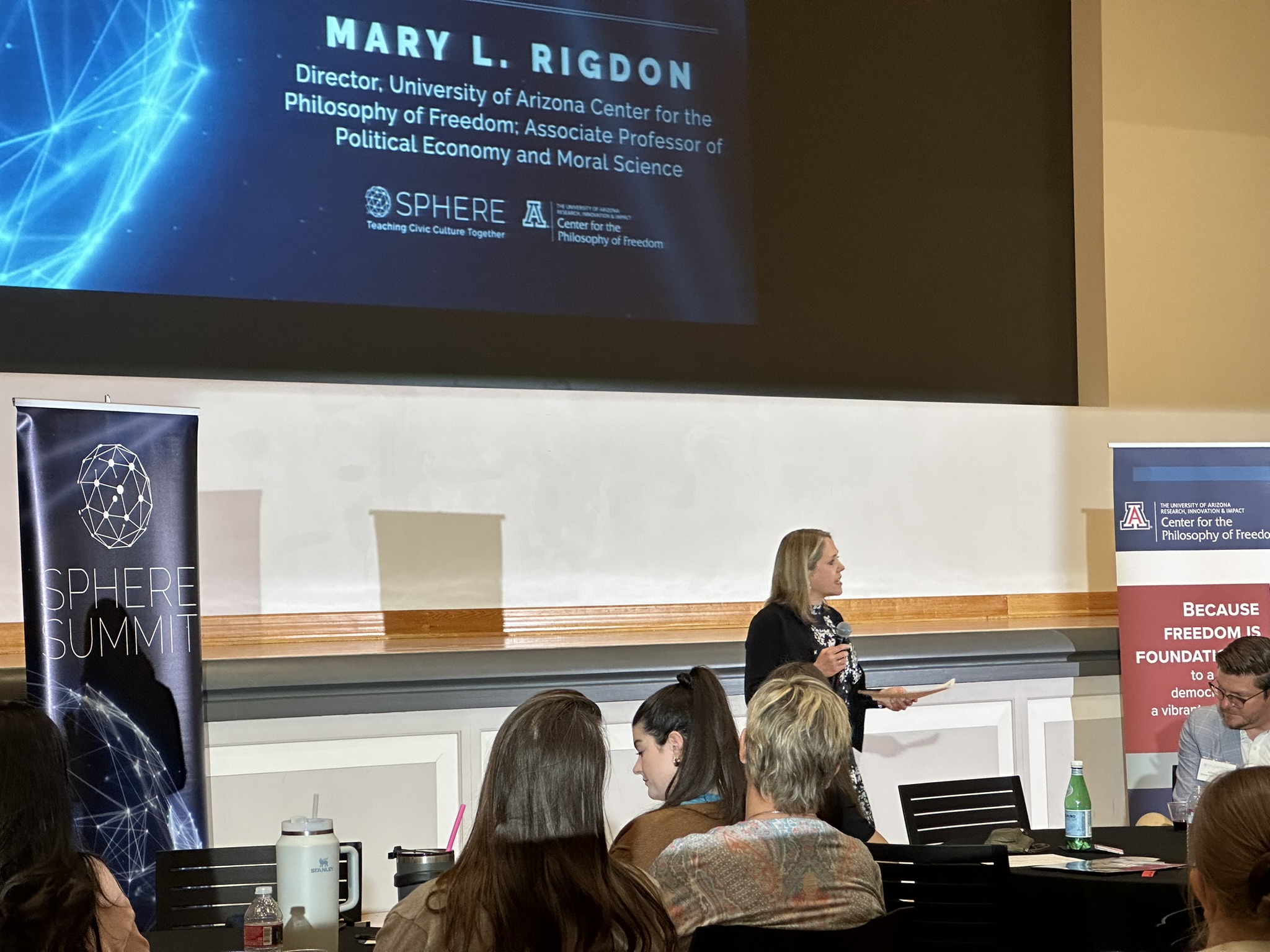The Freedom Center and Cato Institute’s Sphere Education Initiatives partnered to provide more than 100 teachers from Arizona and across America with tools, strategies, and materials to help them promote free speech in their classrooms, address challenging issues, and understand the nation’s complex financial challenges. Welcoming the capacity audience, Mary L. Rigdon, Freedom Center Director and Associate Professor of Political Economy and Moral Science, shared a timeless reminder from the late United States Supreme Court Justice and Arizonan Sandra Day O’Connor.
“The practice of democracy is not passed down through the gene pool. It must be taught and learned by each new generation”
– Justice Sandra Day O’Connor
Justice O’Connor’s words anchored the summit. Teachers gained knowledge from keynotes, panel discussions, and breakout sessions. They left with classroom materials, tools, and strategies to help students understand economics and appreciate the benefits of living in a democracy. Throughout, speakers lauded teachers and acknowledged their critical role in helping students to value diverse viewpoints and respect for others with whom they may disagree.
“Our goal is to honor and enhance your work to help students succeed,” Rigdon continued. “Every student is unique, coming from different environments with their own lived experiences. Teachers have the unique ability to ignite and fuel a lifelong passion for our democratic form of government and the pivotal roles they serve in it.”
Rep. Quang Nguyen delivered a keynote address, acknowledging the teachers’ important role in promoting free speech and civil discourse. He screened his oral history, created for teachers, that chronicles his journey from communism in Vietnam to democracy in America.
“Teachers have a significant and lasting influence on students, and I am so grateful for the many educators who helped shape my life,” Rep. Nguyen said. “I wanted to help give teachers tools and resources to instill an appreciation for free speech and alternative views, to challenge students to form their own opinions while respecting others, and to be able to discuss their differences with an interest in finding common ground.”
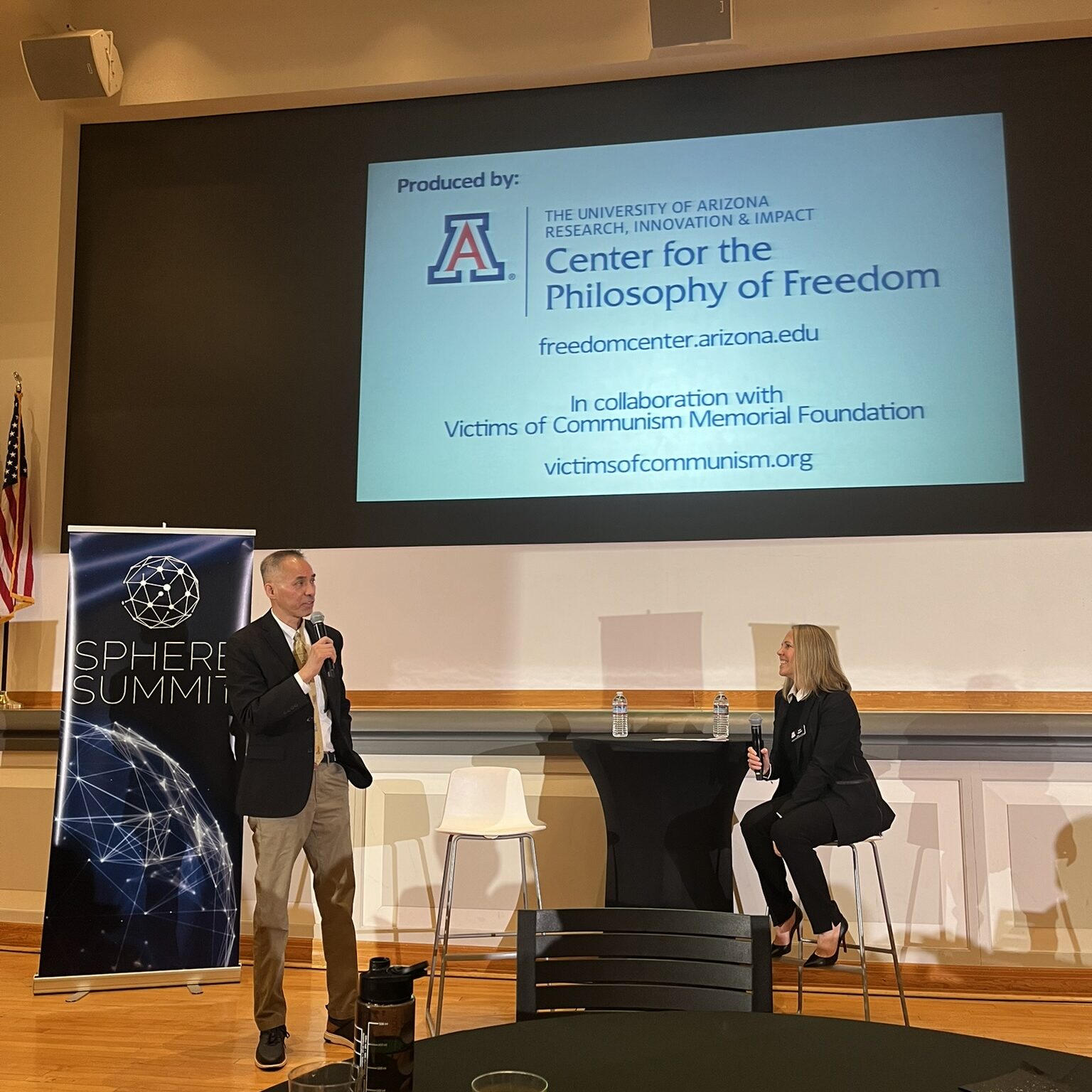
Rep. Nguyen’s documentary is part of the Freedom Center’s Oral History Collection, which the Arizona State Board of Education approved for school use. Rep. Nguyen and Speaker Ben Toma coauthored the 2022 legislation, House Bill 2008, to strengthen civic education by preserving oral histories that educate and inspire by highlighting the stark differences between life under authoritarian governments and democracy in America. Rigdon emphasized the importance of Rep. Nguyen’s experience and perspective while sharing the Freedom Center’s role in creating and housing the collection.
“Rep. Nguyen’s remarkable journey from Vietnam to the Arizona State Legislature embodies the spirit of freedom and the American Dream, and the Freedom Center was proud to document his journey, which provides human context to historical content,” Rigdon noted.
Romina Boccia, Cato Institute Director of Budget and Entitlement Policy, gave another thought-provoking keynote detailing America’s national debt, which totals more than $34 trillion or approximately $101,000 per citizen, including the cost of Medicare and Social Security programs. Boccia acknowledged that these numbers were daunting but was optimistic about efforts to reduce the debt. She highlighted a bill in Congress that would establish a bipartisan debt commission to identify solutions. It would have 16 members: 12 from Congress, evenly divided by party, and four outside experts who would not have voting power.
The final panel discussion featured Sarah Harris, Director of Education for the National Constitution Center, Emma Humphries, Chief Education Officer for iCivics, and moderator Allan Carey, Director of Sphere Education Initiatives. They highlighted challenges teachers face bringing civics education into the classroom, particularly during an election year. The panelists agreed that transparency and communication were critical. Teachers should communicate with school leaders, parents, and students, outlining the planned curriculum and emphasizing the importance of helping students understand elections, evaluate candidates, and participate in democracy.
